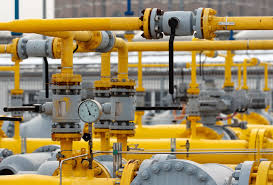Gas consumers in Greece are most likely to face higher bills towards the end of the year as a result of a seemingly misjudged take-or-pay agreement reached by the country’s gas authorities with Russia’s Gazprom last March that is expected to add a needless amount to order costs.
Based on the agreement, Greece is obliged to receive a certain amount of gas, which, even if not absorbed, still needs to be paid.
Greece will need to absorb at least 3.2 billion cubic meters (bcm) of natural gas from Gazprom to avoid paying for unconsumed amounts. Considering the demand indications for the year’s final quarter, overall gas demand in Greece for 2014 is anticipated to be less than this three billion cubic meters level, meaning that the agreement’s take-or-pay clause will be activated.
Officials estimate that the additional cost for Greece will reach 80 million euros, which is expected to be passed on to consumer bills. Even without the effects of this agreement’s misjudgement, the cost of natural gas in Greece is relatively high compared to other European countries.
The miscalculation is not limited to this year alone, but could also have repercussions in 2015 and 2016. Overambitious minimum gas consumption levels, as part of the take-or-pay agreement, have also been set for these two years. The level is even higher for 2016. The reasoning behind the elevated level set for 2016 remains unclear. Consumption levels were on the decline when the agreement with Gazprom was signed last March. It was anticipated that electricity market institutional framework revisions would prompt a further decrease in gas demand after the summer. This forecast was confirmed by a gas demand decline of over 20 percent.





